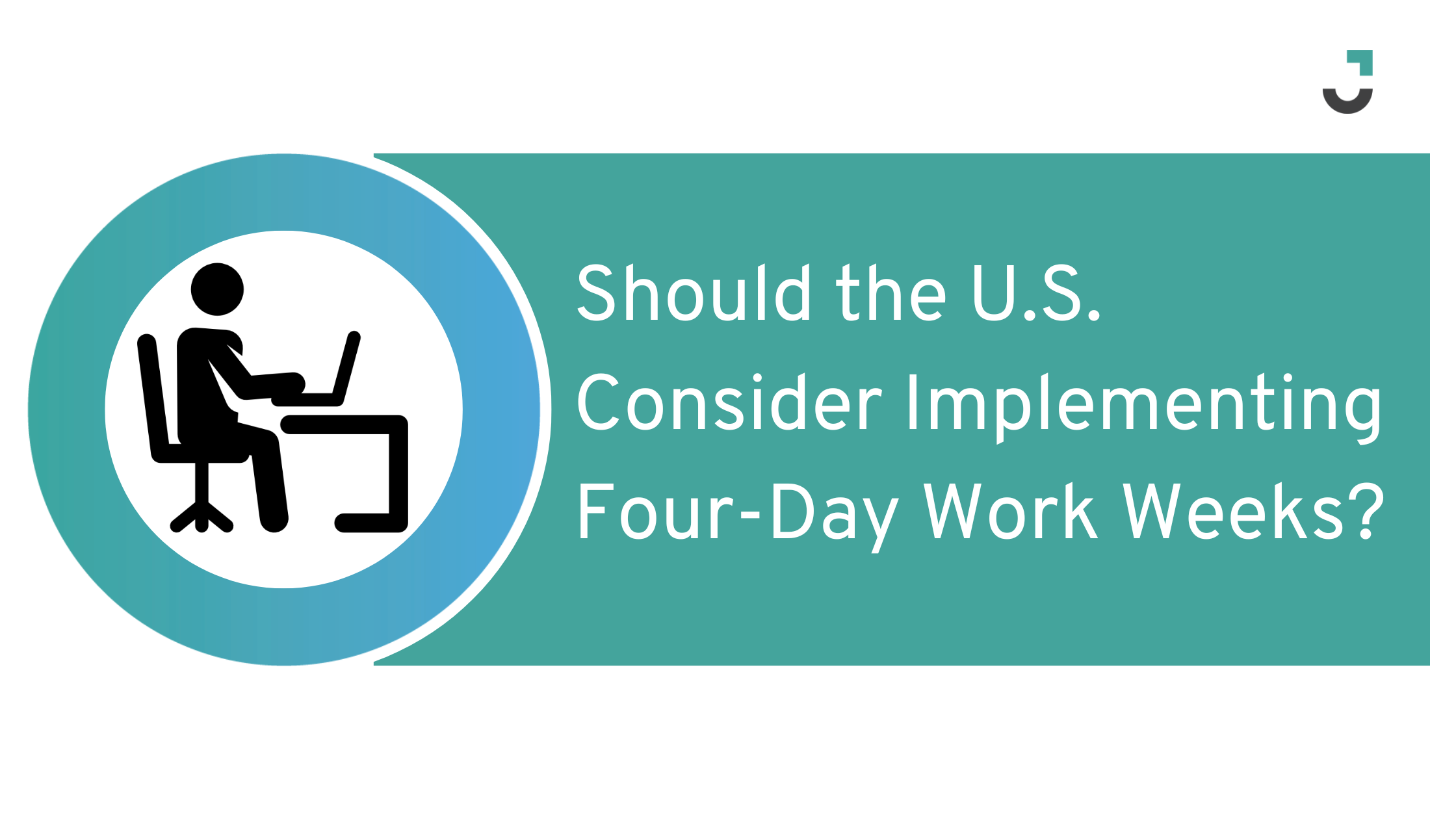Earlier this month, global headlines reported that Iceland had seen great success with their 2015-2019 trial of a four-day workweek involving about 1% of their working population. The report showed that productivity had remained the same or increased and because of this sufficient evidence, Iceland was now allowing workers to move to shorter, but more productive hours.
While the appeal of a four-day workweek, I imagine, is commonplace for most of the working population in the U.S., what are the practicalities of it? Would it actually be possible for the most powerful economy in the world? The report also stated that Icelandic workers used the extra time off for leisure activities and exercise, making them feel more refreshed and therefore able to work more efficiently. All of which seems logical—ask yourself, when you feel well-rested, are you more productive with work tasks? I know I am.
But, and this is a big one, is it actually possible to try and implement this in the U.S. labor market? Let's discuss some of the key areas that would affect the success of a move like this in the labor market.
This will not work in all sectors
Right now, it especially would not work in sectors like hospitality, logistics, or for most hourly wage workers. These industries could not cope with a sudden loss of up to 20% of their labor force’s time and would certainly not be able to absorb the cost of paying employees the same amount for less time. In essence, these industries would be increasing costs at both ends. Firstly, they would have to pay more workers to cover the 20% of time other workers are now off (hotel rooms do not clean themselves). And secondly, they would still be paying the original worker (now working a four-day week), for their time without them actually being present.
I think before we even begin discussing a four-day workweek, it’s important that we consider how many people in the U.S. labor force would simply not be included because of the logistics of their job. We also need to consider that this seems to be more of a privilege that white-collar workers would enjoy instead of an opportunity to improve the entire labor force’s quality of life.
What if not everyone wants it?
While it might seem almost ludicrous to say, there are a lot of people who simply enjoy working—it’s a part of their routine and they’re looking to earn as much income for their time as possible. If an organization were to adopt the policy of a four-day workweek and if an employee wished to continue working five-day weeks, would this now be classed as overtime? Would a company actually want this and would this affect profitability? Employees working more and being paid more doesn’t necessarily result in or translate to more sales or financial output. Something as disruptive and groundbreaking as a four-day workweek would have to be carefully thought out by companies and should not be something that is legislatively enforced by the government.
The data from Iceland was skewed
The above statement is not meant to be critical or negative, however, the title stating that a four-day working week was a productive success is slightly misleading since most readers would assume that the 2,500 workers went from working 40 hours a week to working 32 hours. However, if you read further details about the study, you learn that the participants actually worked 35 to 36 hours over the four days, not 32 hours. So yes, the employees did work four days a week, but the actual loss in time was only half a day based on the total hours worked. Therefore Icelandic workers had increased their working days by up to one hour across the four working days, essentially going from an eight-hour day to a nine-hour day.
It could be fair to assume that if you offered employees the chance to work the same number of hours a week, but also allowed them to compact those hours into a four-day week, many would opt for that. There would be no physical sacrifice from the employer as they’re still getting the same amount of labor in return for salaries paid. And this would be a way that hourly wage workers and white-collar workers could both gain the benefits of working four-day weeks. Lastly, from an economic standpoint, working more hours across less days is far more achievable and practical. The average American is already working 8.2 hours per day—would it be possible to extend that by 1.8 hours in order to have a third day off each week? I believe it absolutely would be.
A discretionary benefit or incentive
This is essentially what it boils down to when we look at the data provided by Iceland. The reality is that the U.S., for the reasons mentioned above, cannot simply offer a four-day workweek and the government should not legislate it. However, companies who are aware that their employees can achieve the same levels of productivity working fewer hours could safely move to a four-day week. And companies may actually choose to offer this as an incentive or benefit for their employees. The four-day workweek could actually be a way to attract and retain talent, especially for any employees looking for a company that not only allows but even encourages a healthy work-life balance.
Summary
Working less and earning the same—who wouldn't say yes? Is it feasible across the board of all sectors and occupations? No, it’s not.
Should U.S. companies embrace the information from Iceland's study and use it as a way of incentivizing their staff? Absolutely yes (especially if it makes commercial and economic sense to do so).
Do I find the headlines about four-day workweeks slightly misleading? Yes, the reality is that while the study was thorough and over a long period (2015-2019), in many cases it’s based on a four and a half-day week or only working four less hours per week, not eight (a 10% reduction in time spent working, not 20%). The study allowed workers to work more hours over four days, which of course provides results showing an equal level of productivity—the motivation to have an entire extra day off, by increasing effort output by 10%, is feasible for most employees.
In truth, I’m delighted the study took place since it’s yet another push towards “work to live” instead of “live to work,” which has previously been the dominant culturally accepted norm around the world. Between this study and the ability to work from anywhere (courtesy of the pandemic), it looks like the workforce and companies are finally starting to acknowledge that we can make work fit in our lives, not the other way around. And I’m all for it.
Original Article Found Here
Original Author: Arran Stewart, Chief Visionary Officer and Co-founder of Job.com
Job.com is a digital recruitment innovator with a unique perspective: Delivering technology and capabilities that shake up the market by bringing together a data-driven approach based in AI and machine learning with high-level, human-capital-delivered solutions, designed to efficiently attract and retain the right talent and provide consumer-level user experiences throughout the hiring process.


